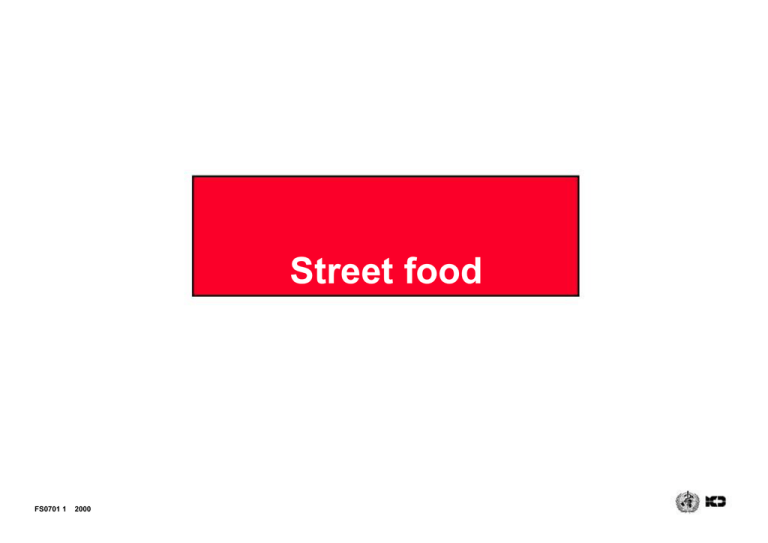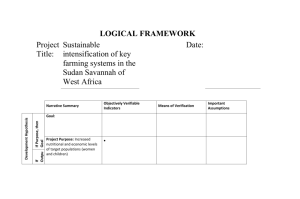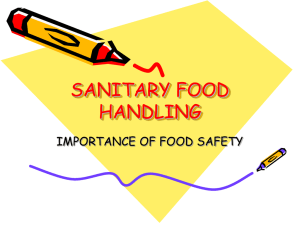Street food
advertisement

Street food FS0701 1 2000 Benefits of street foods Important source of cheap and convenient food May provide self-employment Source of employment, especially for women, in some countries Opportunity to develop business skills with low capital investment FS0701 2 2000 Street foods Annual sales of street foods in Malaysia around 2.2 bio US$ In Bogor alone, annual sales are estimated at 67 mio US$ In view of the economic and nutritional importance of street food, problems associated with it should be solved by making it safer, rather than by making it illegal FS0701 3 2000 Street foods in Indonesia 31 % of the Indonesian population live in urban areas W. Java has a population of 43.6 mio; 47 % live in urban areas 60-75 % of the urban labour force is occupied in street trades There are 300 000 street food hawkers in Jakarta. Bogor has 1 per 14 inhabitants (18 000) 25-30 % of the average household budget is spent on street foods FS0701 4 2000 Potential sources of problems with street foods Hazards of the environment Unsafe water Hazards of preparation and storage Unsafe raw materials FS0701 5 2000 Potential problems of street foods Hazards of the environment Contamination Airborne pathogens and chemicals Insects and other vectors Waste disposal Growth High ambient temperature FS0701 6 2000 Potential problems of street foods Unsafe water quality Contamination Contaminated water used for drinking Contaminated water or ice mixed with food Hand washing not adequate Inadequate cleaning of serving utensils and pots FS0701 7 2000 Potential problems of street foods Inadequate hot/cold holding Contamination Inadequate hygiene measures taken by person preparing the food Growth Food prepared too far in advance Food displayed at ambient temperature Leftover food kept overnight FS0701 8 2000 Potential problems of street foods Unsafe raw materials Contamination Unreliable source Unapproved chemical additives Cross-contamination Growth Inadequate cold storage Long waiting time FS0701 9 2000











